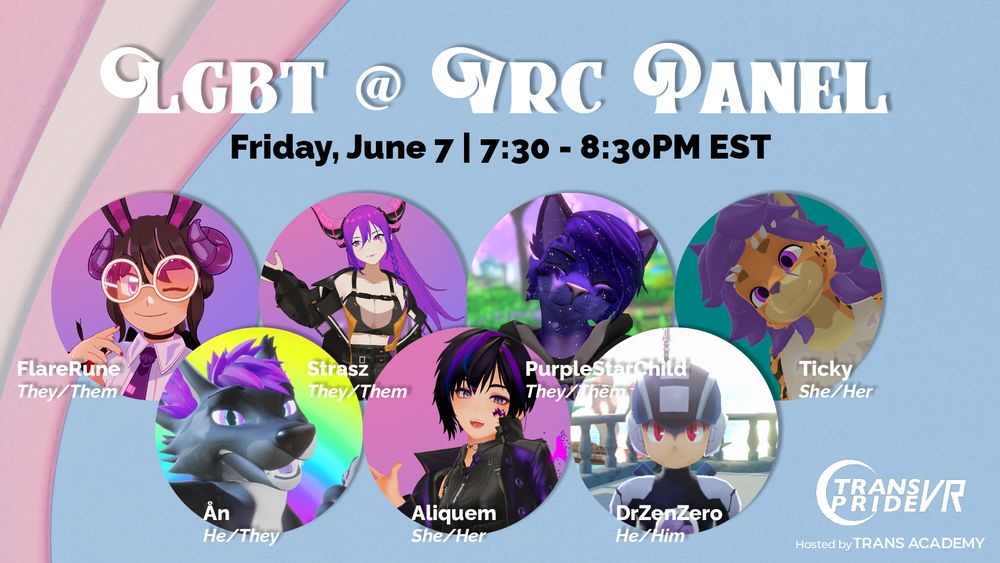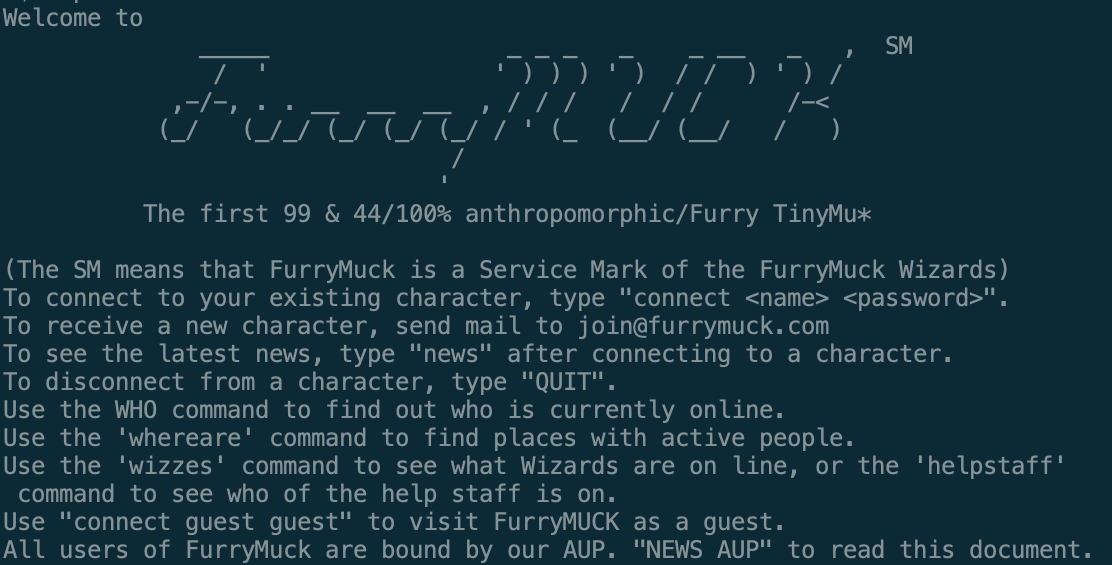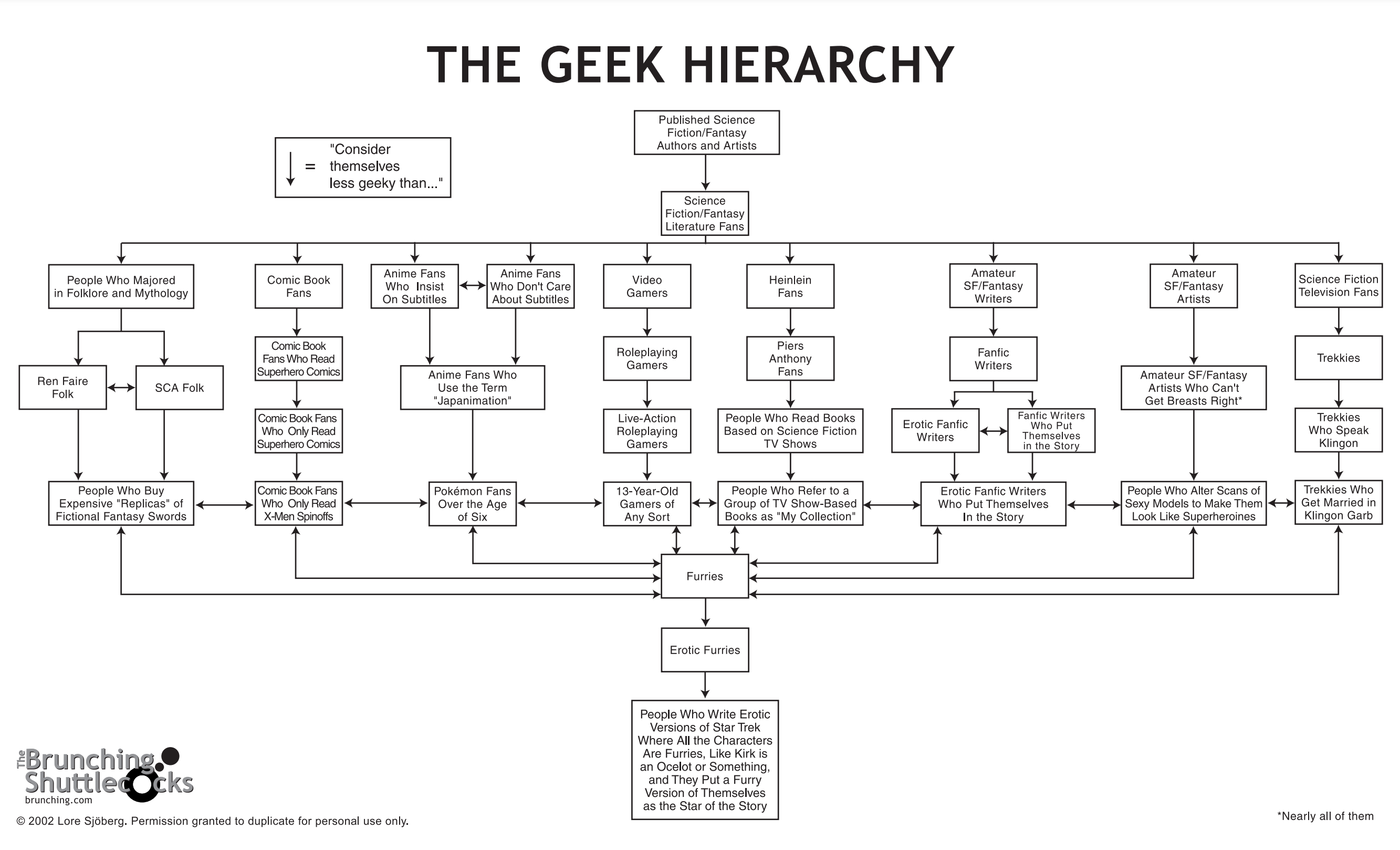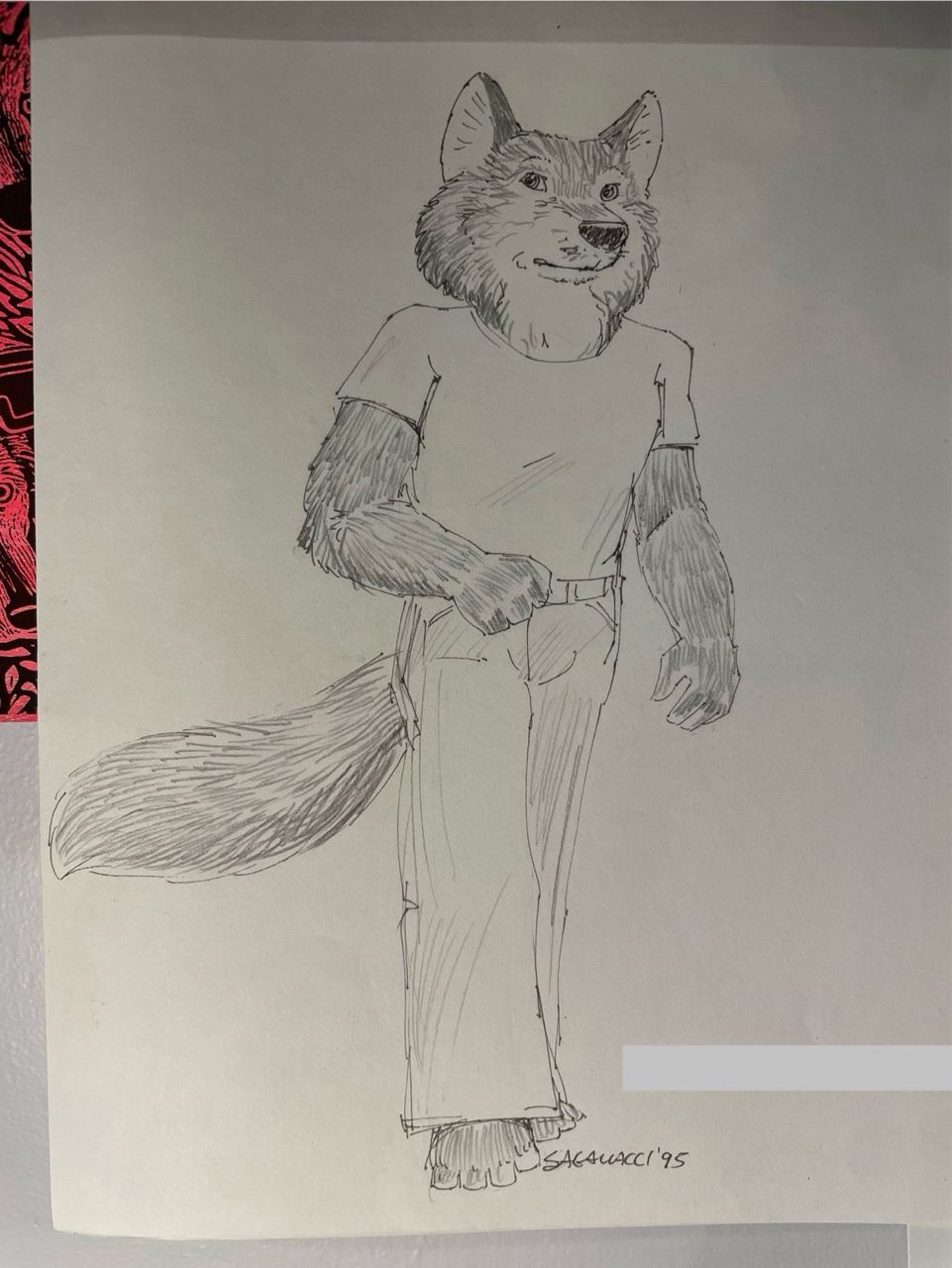
Twenty-Four-Hour Ablative Armor - Part I
This post and the next provides a bit of background on my recent work - but also, if you're already in VR, interested and not occupied this Friday June 7, I'm doing back-to-back events. One registration required and one open to the public:
Friday, June 7 at 6:00 PM EST
Presented as part of the Furality Umbra conference in VR (registration required) What can the furry fandom teach the wider world about safety, community, and resilience? Ån (Systems Design Lead at VRChat) and Shibco (co-founder of New Design Congress) lead a conversation about how the social and technical savvy of furries has created a "third space" between the digital and physical, in stark opposition to the doomscrolling mainstream.

Friday, June 7 at 6:00 PM EST
Returning from last year, the VRChat Team panel now has 7 VRChat panelists! Stop by 6/7 @ 7:30PM EST to hear from @flarechess.bsky.social, @strasz.bsky.social, @aliquem.bsky.social, Starchild, Ån, Ticky, & DrZenZero to get to know them better & get an inside look on LGBTQ+ within the team! Presented as part of Trans Pride at the Trans Academy in VRChat (free and open to the public)

PART 1 - ÅN ORIGIN STORY
In the early 90s, in the waning years of MTV before Kurt Cobain died, just before the World Wide Web launched and the entire planet shifted its economic axis to accommodate the Information Superhighway, I found myself crawling through various tubes via dialup. A favorite pastime: I would log into a borrowed VAX account (and later my own unix shell accounts) cutting and pasting commands gleaned from BBSes, books and magazines I found in the library. Above all: directories full of text files, the most useful repository of information outside the public library, pieced together like pirate treasure maps pointing to other maps, other accounts, servers and snippets of code and incantations I barely understood but nevertheless did things.
I'd already logged several years haunting local BBSes, and I was a fan of text-based adventure games like Planetfall, which, while extremely nerdy, had been around for about a decade. The very early internet (gopher, veronica even the web in those first years), was largely text-based. I have a lifelong love of reading and books and I was beginning to discover both the power of writing words and the power of writing code. The same interface, the same geography at a time when the atmosphere of conjouring and magic was thick. Computers, especially the early networked machines, were steeped in fantasy lore and fantasy language. University networks borrowed heavily from high-fantasy: accounts secured with Kerberos (the three headed dog guarding Hades). Even Netscape, perhaps the blandest and most corporate of the early ventures, had at its heart the Book of Mozilla:
And the beast shall come forth surrounded by a roiling cloud of vengeance. The house of the unbelievers shall be razed and they shall be scorched to the earth. Their tags shall blink until the end of days. — from The Book of Mozilla, 12:10
The lines between spell-work, programming, fiction, storytelling, body-modification, music, mind-altering drugs, religion, philosophy and the ability to type truth to power were thin then. The rules were still being written, the future seemed unclear, but nearly everything seemed possible and programmable. In the shadow of that, I sat terrified of the world: a gen-X, church-going, straight-edge closeted queer kid afraid of sex, afraid of drugs, afraid of AIDS and terrorists and the artists and punks I secretly admired. Pissed at the world but afraid to leave the nest - I devoured every issue of MONDO 2000 and Wired, I listened endlessly to every album in every genre I could find and above all else, I dove into computers, tearing them apart and putting them back together physically, learning to program (badly), reading everything I could find from manuals to the history of hacking. I read and re-read Stephen Levy's Hackers so many times I ended up at MIT for graduate school, and I knew exactly what someone meant later when they critisized that book for being written by someone who "couldn't even get the name of a text editor right" (in the first edition he misspells pico as pica).
Against this backdrop exploring the early network was something I wasn't afraid of - This felt like vast urbex adventure with nearly all the doors unlocked. Every server that answered was up and running, most were unsecured, every command brought something interesting. Three words could open a new account, two closed it, a few letters could give you clues about geography, a few more would teleport you to a personal .plan, where you might find a rumination on the nature of humanity, a recipie for lasagna or instructions on how to build a bomb.
Somehow along the way I cut and pasted the command:
telnet 74.207.243.108:8888
And fell in the middle of a community of internet weirdos known as furry.

@desc me =
For me, a shy, dorky, queer child of evangelicals who was as obsessed with animation and adventure tales of the frozen North as I was with computers and electronics, the furry community didn't seem strange at all, it felt like coming home. It felt like I'd fallen through a crack to discover a universe inhabited by beings whose indigenous habitat was the network. Here was a group of people who felt equally comfortable discussing the upsides of using ZMODEM over other protocols before segueing into group typed-"singalongs" of The Lion King soundtrack, switching comfortably into long discussions of alternate realities, phenomenology and the future of virtual worlds.
I wax poetic over childhood memories, but I'm telling you the truth: I saw The Lion King in the theatre six times. A MUCK friend also mailed me their entire set of college texts on Cognitive Science (which I devoured, and still have). One memorable night five of us chained together some long-distance three-way calls and discussed Sherry Turkle's Second Self. Years later I spent a summer working with Sherry and wrote a chapter for one of her books and was profiled in another (Look for the chapter on the purple elephant). I blame Furry for that. I blame Furry for my gravitation towards SecondLife as well, not so much because of the furry aesthetic (although as with most things, it would prove that community that took the most advantage of the medium), but simply that it was what us early MUCK folks had always talked about: the missing visual element to compliment the text we'd spun in those early days. I spent several years of my life inside SL, including two professionally after joining the IBM Collaborative User Experience Group.
But crucially, in the 90s, as a high school student at an age in an era where everything around me was asking "What are you going to do? what are you going to be? What about your test scores? How will you prove you are worthy?" These environments didn't demand a thing. Instead, they invited me (and anyone else) to spin the universe we wanted from pure text. And while not limited to the furry community, these virtual worlds were self reflective to a stunning degree. Governance and ethics were regular topics of conversation. But also, in those days if someone sent unsolicited email to your inbox you could write to the individual in charge of their mail server and expect a response. It was a different time.
I tried once or twice to explain FurryMUCK to people around me who didn't really know what a modem or a telnet was. It made zero sense and I wasn't met with derision so much as blank looks of confusion and perhaps pity. A well-meaning school counselor hinted I might have a drug problem. In 1994 Johnny Manhattan Meets the Furry Muckers hit Wired and the die was cast. In spite of the title, the article only barely touches on Furry, mostly as a punchline that the author offers "goes a long way to explain [the usenet message board] alt.sex.bestiality."
To be fair, the original magazine version of that article included a lengthier gonzo-travelogue visit to the MUCK that provided more context than has survived in the archive (I know this because I borrowed that particular issue from my highschool friend, eager to read some coverage about this universe I found on the other side of the wardrobe). I remember being mildly disappointed but not particularly miffed at the mischaracterization: the adults in my life got pretty much everything wrong, why wouldn't they misunderstand this too?
There are some circles of furry where this particular article is cited as the beginning of a long and difficult culture-war of furry vs. "the media," but if that was true I certainly didn't see it. Nobody on FurryMUCK that I knew gave a fuck, other than being annoyed at the sudden influx of sex-tourists less interested in chatting than shouting lewd things in public. The moment passed.
More critically though, a new vision of the Great Man theory was waiting in the wings: the misogynist-asshole-programmer-prince was man-splaining himself to the front of the line. The archetype of the dotcom dude-bro who would soon be directing the next few decades of our lives. That model - the Elon Musk template - was what was necessary to shift the locus of financial power from real estate and cocaine to cyberspace and ecstasy. A vision of the future was needed that mainlined power without consequence. Clinton wrote Don't-Ask-Don't-Tell into law. FurryMUCK was the first system I encountered (and the only, for nearly 30 years) that asked me what my pronouns were.
Against the burgeoning dotcom boom, furry provided a trans-humanist vision of the future that was too trans, too humanist, too queer, too quaint, too soft, too femme, too interested in play and care and mutual aid (and yes sex and parties) and the possibility of flexible identity than the network could possibly allow in its quest for growth. If computer nerds were going to go mainstream and the world was going to be digitized, the order needed quick and heavy reification along familiar lines of power. The network needed biometrics (and biomarkers) to see like a state. One identity, assigned at birth. Certainly none of this trans-species fuckery.

I walked away from furry around this time without it ever having escaped the bounds of my computer. I didn't quit dramatically, I just got busy, and my online friends graduated and moved on with their lives. I worked on my own shit and I learned to be less afraid and I got a job in writing code for the internet so I could pay for art school. I dyed my hair purple and went to bars and live shows and I kept poking at computers, looking for a way back in to the network I remembered falling in love with, seeking out the gaps in the fence that provided the most interesting glimpse at a future that seemed so much more interesting before it became an industry.
I worked my way to MIT where in the first month of grad school the terrorists of my childhood flew planes into New York City, a place I knew by then (a bit) but by the time I got there, all the artists I'd wanted to meet had died from AIDS.
I met new friends and new artists, and somewhere in that strange haze I wandered into a demo of Linden World. "Crash" was the assigned surname of testing accounts, I typed "Coyote" as my first name, not sure I wanted to claim furry but pretty firmly identifying with trickster deities. This is my preferred survival strategy to this day: a personal choice and a powerful metaphor I carry with me to own my discomfort as a strategy. There's always the feral exit. In any case my sole contribution to those early days was to map coyote-eyes into the head of my uncanny Ruth avatar. I suggested that maybe it could be interesting to support bodies that weren't so human shaped? The community took care of that eventually.
I met new online friends, described myself as "from the internet" and began a career in social software research, diving head-first into trying to share the ways that online community outlined a better tomorrow. I watched those ideas meet scale and explode, the social media golem that connected my new online community weaponized itself and turned into a propaganda machine for the highest bidder. Twitter brought Si Se Puede! to the lawn of the capital and I swear I was there (tweeting, with tears in my eyes), the inauguration of America's first black president on a campaign of hope. From that perch I watched the right exact its revenge using the same tools: 4chan manifest into a vast hyperbolic cartoon-fascist nightmare no less vicious and dangerous for being so fucking stupid. We remain in the shadow of that today and the future looks grim.
The network always paid my bills: I did time as an engineer. I got a house. I moved to industrial research. I quit IBM, I moved to Europe, started a family, tried to write and talk my way back to a place where I thought I could chain together some art, some late-night three-way-calls with queer friends to discuss the future of humanity on the network. Pandemic and academic politics and state violence intervened; I failed to make a soft landing.
Reluctantly returning (home?) at 45, my family briefly moved in with my parents while we transitioned our household. I discovered state-law required me to take driving lessons again and re-apply for permission to operate a vehicle. I found myself instantly frustrated and 16 again. Digging through the attic, I pulled open a cardboard box and found a pencil drawing.

My FurryMUCK character in plantigrade wolf form circa 1995, mailed to me by my online friends who attended Confurence 6 and somehow convinced Steve Gallacci of Albedo Anthropomorphics fame to draw... me.
Part II: SURVIVAL SUITS FOR A NEW ERA (coming soon)























